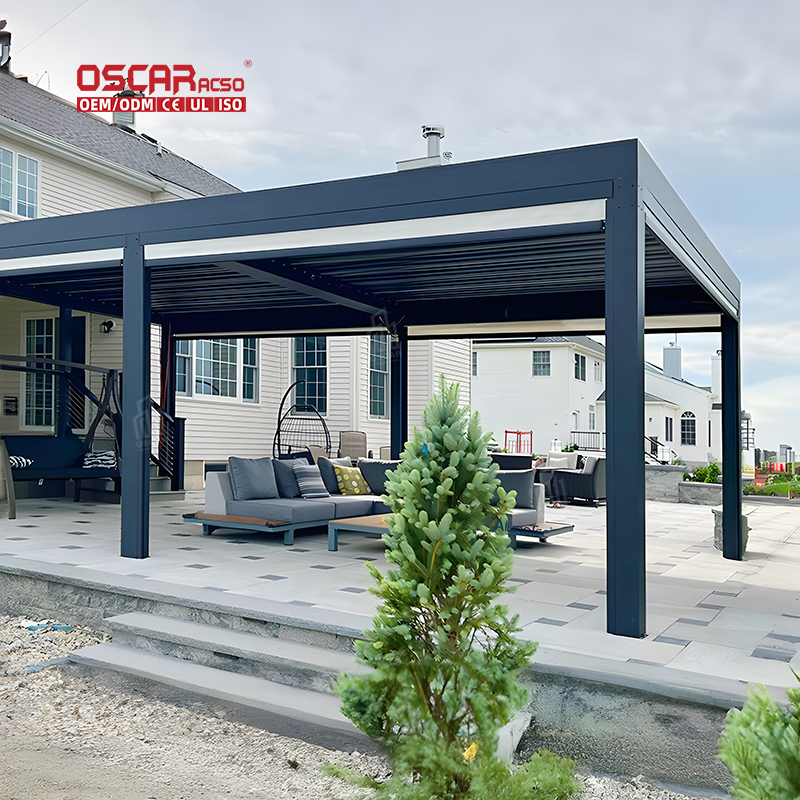Pergola Post Planning Made Simple, Unlock the Secret to Perfect Support
Dreaming of a beautiful pergola in your backyard? A crucial question pops up: how many posts does this structure actua...
Dreaming of a beautiful pergola in your backyard? A crucial question pops up: how many posts does this structure actually need? 🤔 The answer isn’t one-size-fits-all; it depends on your design, size, and goals. Let’s break it down so you can build with confidence.

🔍 Key Factors Influencing Post Quantity
The number of posts your pergola requires isn’t arbitrary. It’s primarily influenced by the size and span of your structure. A small, intimate pergola might only need four posts, while larger designs will require additional support.
- •
Pergola Size: This is the main driver. A compact pergola, say 10’x10’, often works perfectly with four posts. However, as the size increases, so does the need for more support. For a pergola wider than 4.5 meters (approx. 14.75 ft), you might need to double the number of posts to eight to ensure stability and prevent sagging.
- •
Design and Attachment: Is your pergola freestanding or attached to your house? An attached pergola might use your home’s wall as support on one side, potentially reducing the number of posts needed on that side.
- •
Local Building Codes: Always check! Your local regulations might have specific requirements for structural support based on your area’s weather conditions (like snow or wind loads), which can influence the number and size of posts.
📐 Standard Configurations & Spacing
While customizations are endless, most pergolas follow some common practices. The standard spacing between posts typically falls between 8 to 10 feet apart.
This spacing ensures a good balance between structural integrity and aesthetic appeal. For a classic 10’x10’ pergola, this means one post at each corner. If you’re building a rectangular pergola, like a 12’x16’ design, you’ll likely still have four posts, but the longer beams will need to be strong enough to handle the span between them.
Wider structures or those in areas with heavy loads (snow, wind) will benefit from closer post spacing or thicker posts to ensure everything stays sturdy and safe.
.jpg)
🧮 How to Calculate the Number of Posts
Ready to do a quick calculation for your project? Here’s a basic way to estimate:
- 1.
Determine the total length of the side where the posts will be placed.
- 2.
Divide this length by your desired spacing (e.g., 8 or 10 feet).
- 3.
Add 1 to the result to account for the post at the starting point.
Example: For a 16-foot long side with 8-foot spacing.
- •
16′ / 8′ = 2
- •
2 + 1 = 3 posts on that side.

Repeat for the other side. For a simple rectangular pergola, this often results in 6 total posts (3 on each long side), which is common for sizes that exceed the standard corner-post-only design.
Remember, this is a simplified method. Always factor in the overhang if your beams will extend beyond the posts for a classic look.
🌦️ Adjusting for Climate and Function
Your local environment and how you plan to use the pergola are vital considerations for post number and strength.
- •
Snowy or Windy Regions: If you experience heavy snow or strong winds, closer post spacing and thicker posts (like 6×6 inches instead of 4×4) are strongly advised. This provides extra strength to handle the additional weight and force.
- •
Growing Plants: Planning for climbing vines like wisteria or grapes? While the plants themselves might not add immense weight, a mature, dense canopy can catch wind and rain. Ensuring robust post support from the start is a smart move.
- •
Hot and Sunny Climates: If maximizing shade is the goal, you might use a denser rafter pattern or a shade cloth. While this doesn’t directly change post numbers, it emphasizes the need for a strong foundation to hold any additional shade elements.
💡 Material Choices and Their Impact
The material you choose for your posts influences their strength, maintenance, and even the potential need for additional support.
- •
Wood (Cedar, Pressure-Treated Pine): A classic and popular choice. Pressure-treated pine is a durable and often more cost-effective option, though it may require more regular maintenance like sealing or staining. Cedar offers natural resistance to decay and insects.
- •
Metal (Aluminum): Aluminum pergolas are rising in popularity! They offer great durability, are low maintenance, and often come with customization options without the worry of rot or insect damage.
- •
Vinyl: Combines durability with low maintenance, offering an ideal choice for outdoor settings.
Post Size Matters Too! For most standard pergolas, 6×6 inch posts are recommended for their superior load-bearing capacity and resistance to warping. While 4×4 posts can be used for smaller, lighter structures, they may not be appropriate for larger sizes or heavier loads.

✅ Final Checklist and Pro Tips
Before you finalize your plan and start digging, run through this list:
- •
Check Local Building Codes: This is non-negotiable. Always consult local building codes and regulations. They may have specific requirements for footing depth, post size, and overall structural integrity.
- •
Consider Professional Help: For large or complex designs, or if you’re unsure about load calculations, consulting a professional builder or structural engineer can be a wise investment.

- •
Think Long-Term: Consider the long-term maintenance of your chosen material. A vinyl or aluminum post might save you time on staining and sealing down the road.
- •
Visualize the End Result: Remember, posts are a major visual element. Thicker posts (6×6) often provide a more substantial and robust look, while thinner posts can appear more minimalist.
Choosing the right number and type of posts is about building a foundation for years of enjoyment. By understanding these principles, you’re well on your way to creating a beautiful, functional, and safe outdoor living space. 🎉

